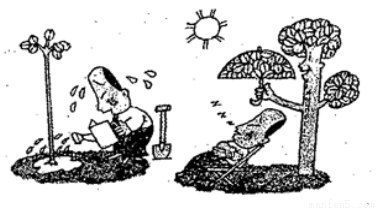题目内容
根据短文内容,从短文后的选项中选出能填入空白处的最佳选项。选项中有两项为多余选项。
An interview can be a nerve-racking (令人紧张的) experience. 1. Nevertheless, with a few interview tips, you will be on your way to getting that job you need so desperately!
The first interview tip you will ever get is to be yourself. 2. You must bear in mind that there is no one else like you on the earth. In believing in yourself, you can successfully prepare yourself psychologically for that nerve-racking interview!
Second in line for great interview tips is that you should be on time. 3. If you think that you may run into a problem getting to a interview on time, leave early to ensure that you will get there on time. Showing up for an interview on time shows that you are a responsible person.
A great tip to remember during an interview is to turn off your cell phone. There is nothing more annoying to an employer than a cell phone ringing every five minutes during an interview. 4. So it is best to turn off your cell phone.
5. An interviewer’s tone of voice, their attitude, their style of speech and their body motions can indicate to you how you should respond to the questions they pose.
A. Send an e-mail to the interviewer on time.
B. Being late for an interview is unsatisfactory.
C. Therefore knowing how to get through an interview is vital.
D. The cell phone is very useful whenever you are in trouble.
E. Act naturally and take pride in yourself.
F. Pay close attention to the interviewer while you are being interviewed.
G. Besides, continuous interruptions may be a sign of unprofessional behavior.
书面表达
高中生考入大学后,是否要立即为其配备笔记本电脑呢?对此,有人赞同,有人反对。请你根据下列表格的内容写一篇英语短文,并发表你的看法。
支持者 | 反对者 |
1. 是对子女奋发努力取得好成绩的肯定和奖励 2. 方便今后的学习,随时随地地可以上网查阅资料 | 1. 给有些家庭增加了经济负担 2. 大学学习条件比较优越,有足够的计算机房供学生使用 |
你的看法(至少两点)…… |
注意:1. 对所给要点逐一陈述并适当发挥,不要简单翻译。
2.词数100左右,开头已经给出,不计入总词数。
Is it necessary for freshmen to have a laptop when they go to university? Different people have different ideas.


